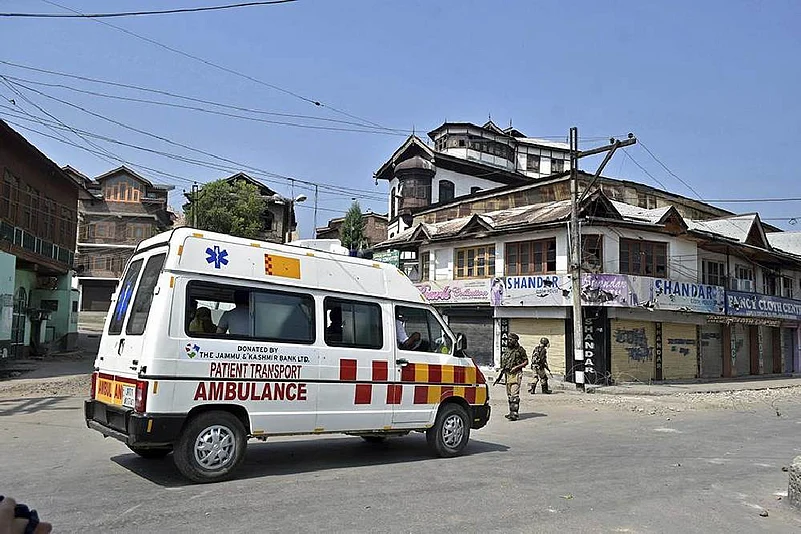Since August 5, when the government imposed strict restrictions following the abrogation of provisions of Article 370, there has been a rise in cases of heart attacks in Kashmir valley, doctors say. The situation has been further exacerbated due to the communication blackout that has hit the patient care the most.
“In August and September, we have seen a rise in heart attack cases. Such a rise was earlier witnessed during winters only. Now, we get eight to 10 patients every day, which is unprecedented," a doctor, posted at the Shri Maharaja Hari Singh (SMHS) hospital in Srinagar, said on the condition of anonymity.
With information blockade in place, the doctor said they have no idea how many people might have died of heart attacks in their homes due to the lack of emergency medical care.
“In August, there were curfew-like restrictions. People were afraid of coming out of homes. Even now, there is no communication and I fear many people might have died in their homes,” says the doctor.
He said doctors been barred from speaking to media. Even the Doctor’s Association of Kashmir has not issued a single statement since the August 4 clampdown.
Another doctor said that on August 24, he received a patient who had suffered a heart attack. The patient needed stent procedure.
“The concerned technician was not in the hospital. I was told he was at his home in the old city. I asked for an ambulance but none was available," he said.
He said he feared the patient might lose his life, so he drove to the old city to locate the technician. “It was about 9 in the evening and I finally traced his home and took him along," he said.
On their way to the hospital, the doctor said, they were stopped at several checkpoints by security forces, asking them for the reasons for travel late in the evening.
“It was the most horrible journey of my life. I had to explain after every five minutes to the security forces why I was driving to the hospital,” he added.
At several places, he said, patients suffering from heart failures were forced to walk for over 10 km before they could reach the hospital. “They get decompensated until they reach the hospital.”
According to the doctors, the absence of communication has complicated the problem and patients reach the hospital after much damage to their heart. “There is no golden hour now,” says a doctor.
Doctors said that one of the biggest casualties of the communication blackout is 'Save Heart Initiative'. Under this initiative, top cardiologists of the Valley would give advice and suggestions, via WhatsApp groups, to doctors at different district-level hospitals. With Internet services snapped, the initiative is defunct.
The last message on Save Heart Initiative WhatsApp group was received on August 4: the message was about an ECG report of a patient. Since the communication is broken, the situation has turned worse as it has become impossible to trace the cardiologists who would give advice and suggestions in some complicated cases.
A doctor posted at the Government Medical College says the present situation in Kashmir valley resembles a humanitarian crisis. “I have drawn a road map of my house and pasted it in the hospital. In case patients require my assistance when I am home, they can follow the map. But imagine, somehow they reach my home and I am not there!” he asks.
“My phone is not working. In case I am at SMHS hospital but I am required at a maternity hospital for an emergency case, how will I be traced? The patient might die. I think many patients might have died due to the same reasons," says a cardiologist.
In hospitals, people wait for hours to carry their dead to home as communication blockade has affected ambulance services also.
Once the ambulances are out of hospital premises, the officials lose contact with them. The ambulance drivers operate independently to ferry staff and patients.
With these mounting problems that have crippled the healthcare services in the Valley, officials at the SMHS hospital say they have requested the government to restore mobile numbers of the ambulance drivers. It remains to be seen if there will some respite for those in the healthcare sector in the Valley.
















